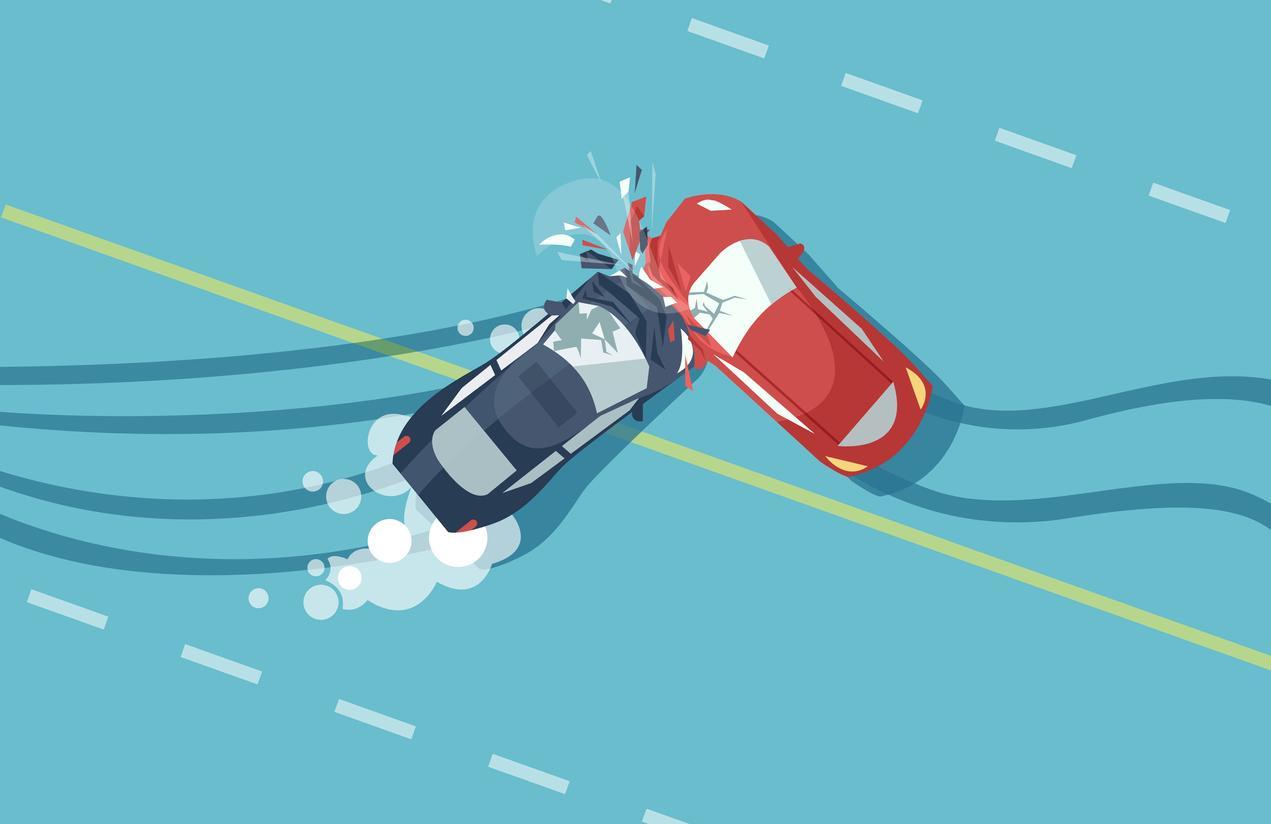My Car Was Totaled and I’m Not at Fault. What do I do?
You are a responsible driver. You always use your blinker, obey the speed limits, and come to a full stop at intersections. However, you still find yourself in an accident because of another driver’s actions. On top of that, your vehicle is now totaled. Sounds familiar? Do you need an auto accident lawyer, or are you filing a claim yourself?
Here’s everything you should know about “total loss” and what to do in case when you’re not at fault. We are Legal Chiefs and help individuals and businesses find suitable lawyers for their cases all over the United States.
What Does a “Total Loss” Mean?
When it comes to car insurance, “total loss” is a term used by insurers when the cost of the repair is more than the value of your vehicle. Insurance companies typically complete an inspection of the damaged vehicle before declaring it a total loss.
Keep in mind that a vehicle is automatically deemed to be a total loss in some states if the cost to repair it exceeds a certain percentage of the vehicle’s worth.
Determining a Total Loss
The first is to file a car accident claim with the other driver’s insurer. All the documentation should be assembled with the utmost care, preferably by a professional lawyer, to ensure that you are fully compensated. Keep in mind that any modifications such as new tires, improved stereo system, etc., may impact the overall assessed value of your vehicle.
An insurance adjuster will gather all the information about your vehicle to determine its value before the accident. The total amount is then compared to the cost of the repair required. Depending on the state you are in, a total loss may be declared when the repairs are 70% or more of the actual value of your vehicle. Keep in mind that the insurer may set a higher percentage (but not a lower) than the state in reaching this determination.
What to Do After a Loss Is Determined?
After your vehicle has been totaled, the insurer should compensate you for the vehicle’s determined value before the accident. However, they cannot replace your vehicle nor guarantee that the pre-accident value would be enough for you to purchase a replacement. Also, in most cases, you won’t be able to keep the wrecked vehicle because by accepting a settlement payment, you agree that the insurer will take possession of the totaled car. From there, they are responsible to sell that vehicle to a scrap yard or repair it and put it back on the market as a salvaged titled vehicle. To better understand the specifics of your situation and receive more valuable advice, it’s usually recommended that you hire an auto accident attorney to help you with the case.
Potential Car Accident Claim Issues
The first issue that may arise when a car is totaled, and you are not at fault involves an insurer’s value estimate of your wrecked vehicle that is too low. An auto accident lawyer would suggest requesting an insurance adjuster’s opinion, and the adjuster may send a reply that includes arguments and evidence of a higher estimate of the vehicle’s value. Having an attorney by your side is important as the insurer may be unwilling to value your vehicle properly, and you may have to sue them in civil court.
Another issue may occur when you purchase your vehicle with a loan and the amount outstanding is greater than the insurer’s estimate. What’s unfortunate in this situation is that the car’s destruction doesn’t alter the loan agreement in any way, and your only recourse may be to argue for a higher value of the vehicle.
Getting Help From an Auto Accident Lawyer
When dealing with any car accident claim on your own, you may feel like there is not much to do, and it is an easy task. This is why contacting a professional attorney is recommended, especially when your vehicle is totaled. It helps if you always keep in mind that insurers have years of experience under their belts, and their only interest is to find a way to avoid payouts.
The best way to prove your vehicle’s value (before the accident) is through the opinion of a qualified auto accident lawyer, and this is where we, at Legal Chiefs, come in. Think about it. Suppose you disagree with the insurer’s valuation of your vehicle. In that case, a professional attorney will do the work of coming up with a way to prove your car’s value. Using an online car value calculator won’t be as good as a legitimate third party. If you want to get the most of your vehicle, a live testimony from a qualified expert is usually an advantage.
Find An Auto Accident Attorney In Your Area

